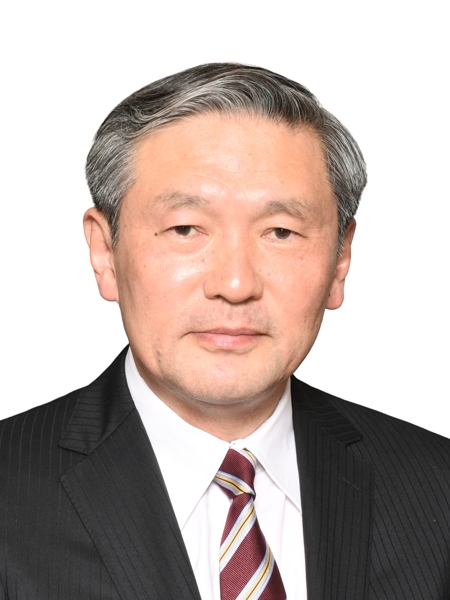


代表メッセージ



コミュニケーション研究所代表
山口博嗣
Hirotsugu Yamaguchi
はじめに
急速に少子高齢化社会へと向かっている日本には、二つの大きな課題があります。
第一に、生産年齢人口が減少する中で日本経済が引き続き発展するためには、日本における外国人の働き手を増やすことが必要です。
第二に、日本社会が豊かさと温かみを持った社会になるためには、日本人であれ、外国人であれ、安心して心豊かに生活できる環境が必要です。国籍にかかわらず、人々が、お互いの違いを尊重する社会になる必要があります。
異なる文化圏に属する人たちが、ばらばらに努力しても効果は限られます。お互いが理解しあい、協力し合う必要があります。そうなるために、異文化間コミュニケーションの重要性は、いくら強調してもし過ぎることはありません。
今や日本社会は、スムーズな異文化間コミュニケーションなしでは発展できない段階に入ったとの認識の下、「SOCCS異文化間コミュニケーション研究所」(英語名”Society for Cross-Cultural Communication” 略称:SOCCS)を設立しました。
外国人との異文化間コミュニケーション
まず、外国人の働き手について考えてみます。
重要なことは、単なる数合わせのために外国人の労働力を活用しようという意識を変えることです。そのような意識では、日本で働く外国人の満足は得られず、早晩、日本は外国人から働き場所として選ばれなくなるでしょう。日本人が外国人と本当に共生する意識、すなわち、多文化共生の意識を持たなくては、日本は、いつまで経っても、異質なものに対する許容度が低く、外国人にとって敷居の高い国のままです。
日本社会が本当の意味で多文化共生社会となるためには、さまざまなことが必要ですが、その中で最も重要なことの一つは、異文化間コミュニケーションを通した相互理解です。
外国人の働き手について述べたことは、日本で学んでいる留学生にとっても、そのまま当てはまります。大学等が、日本人学生と留学生との活発な交流を目指すのでなく、単なる数合わせとして留学生を入学させるのであれば、留学生にとって、日本は魅力的な学びの場ではなくなるでしょう。
当研究所の活動―異文化間コミュニケーションの実践と研究
以上述べてきたことを踏まえて、当研究所は次のことを行います。
第一に、異文化間コミュニケーションの機会をさまざまな形で提供します。
第二に、お互いのカルチャーを理解し、異文化間の相互理解を深めるための学びの機会を提供します。
第三に、個人や組織として、日頃から外国人とのコミュニケーションに何らかの形で関わり、その改善に取り組んでいる日本人たちに情報交換と研究の場を提供します。また、日本や海外で学んだり働いたりしながら、日本のカルチャーを理解し、日本人とのコミュニケーションを深めようとしている外国人にも、そのための情報交換と研究の場を提供します。
こうした活動の中で、日本社会における、よりよい異文化間コミュニケーションのあり方についての研究を深めていきます。
終わりに
日本社会は、日本人であれ外国人であれ、お互いの違いに寛容で、違いを尊重し、違いを面白いと感じ、ダイバーシティーがお互いを豊かにするような社会に変わる必要があります。そうなれば、日本社会は再び輝きを取り戻し、結果として、それは日本経済にとっても大きなプラスになるに違いありません。
当研究所は、日本社会が豊かさと温かみを持った真の多文化共生社会となることに貢献したいと心より願っています。
Preface
Japan is speedily heading toward becoming an aging society with a decreasing birth rate. Amidst this, there are two major challenges.
First, for the Japanese economy to continue developing, it is necessary to increase the number of foreign workers in Japan as the working-age population decreases.
Second, in order for Japanese society to become a society of warmth and abundance, it is necessary for both Japanese and foreigners to have an environment where they can live with spiritual richness and peace of mind.
We believe that it is necessary for Japan to become a society where people respect each other’s differences regardless of nationality.
Yet, scattered efforts of people of different cultures could only create a limited effect. It is necessary to understand one another and cooperate with one another. For this purpose, the importance of intercultural communication cannot be stressed enough.
Japanese society is now at a stage in which it cannot evolve without conducting smooth cross-cultural communication. We have established the Society for Cross-Cultural Communication (SOCCS) in awareness of this.
Intercultural communication with foreigners
Let us first consider foreign workers.
The important thing is to change the thinking that foreign labor is just something to use for getting the necessary number of workers. With thinking like that, the satisfaction of foreigners working in Japan cannot be gained, and sooner or later, Japan will no longer be chosen by foreigners as a place to work. Unless the Japanese have the consciousness to coexist with foreigners, Japan will remain forever unaccepting of foreign elements and maintain high barriers to entry from the outside.
For Japan to become a multicultural society in the truest sense of the word, several things need to be in place. The most important of them is mutual understanding through cross-cultural communication.
The statement above regarding foreign workers can also be applied to foreigners studying in Japan. If colleges and schools admit foreign students simply to supplement their student numbers without aiming to create active exchange between them and their Japanese students, foreign students will not come to think of Japan as an appealing place to study.
Activities of SOCCS
– Research and practice of cross-cultural communication
Considering the above, SOCCS will conduct the following.
First, we will offer various types of opportunities for cross-cultural communication. Second, we will offer opportunities for people to learn the cultures of each other and deepen mutual understanding cross-culturally. Third, we will offer a place for information exchange and research for Japanese endeavoring for the improvement of this area.
We will also offer a place for information exchange and research for foreigners who are trying to understand Japanese culture and deepen their communication with Japanese people while studying or working in and outside Japan.
As we pursue our activities, we will also continue our research of the ideal state for better cross-cultural communication in Japanese society.
Conclusion
In Japan, society must change to become one in which people are tolerant and respectful of each other’s differences, as well as find those differences compelling, regardless of whether the other person is Japanese or foreign, and become a society where diversity enriches both sides. When that happens, Japanese society will regain its brilliance, and as a result, the Japanese economy will undoubtedly reap major benefits.
SOCCS sincerely hopes to contribute toward the emergence of a truly multi-cultural Japanese society with warmth and abundance.

代表メッセージ


よくあるご質問

CONTACT
お問い合わせ
Please feel free to contact usif you have any questions.
ご不明なことなどがありましたら
お問い合わせください。

メールフォーム
mail form